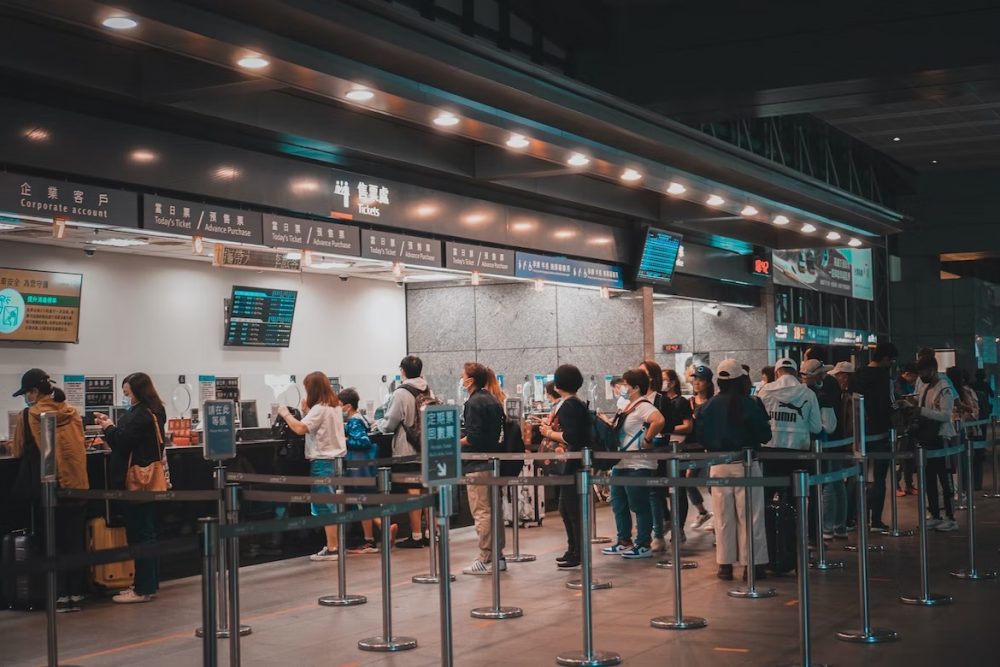International travel has become increasingly common, connecting people across borders and continents. However, flight disruptions, such as delays, cancellations, and overbooking, can create challenges for passengers, especially when navigating the complexities of cross-border regulations or claiming compensation for denied boarding.
Featured Image VIA
This article aims to guide international travelers through the process of claiming flight compensation and understanding the varying rules in different countries.
Crossing Borders, Crossing Rules
Navigating the complexities of flight compensation, international travelers encounter a diverse array of regulations and policies that differ from one country or region to another. It’s crucial for these globetrotters to stay well-informed about the rules applicable to their specific journeys, as this knowledge can empower them to claim their rightful compensation while easing the stress and inconvenience of flight disruptions.
Moreover, international travelers need to be aware of the disparities in consumer protection laws and enforcement mechanisms between countries. Some nations boast strong regulations and systems designed to safeguard passengers’ rights, while others might not offer the same level of protection. Consequently, it is vital for travelers to acquaint themselves with the intricacies of these diverse legal frameworks to be well-prepared for any potential issues.
Eligibility For Compensation
The criteria for determining compensation eligibility often hinge on the disruption’s particulars, such as the delay duration, the reasons for the cancellation, or instances of denied boarding. These conditions for eligibility can vary across countries and airlines, making it essential for passengers to familiarize themselves with the requirements if they are seeking compensation for disrupted flights.
Beyond the regulations established by countries and regions, airlines may implement their own policies governing compensation eligibility. Occasionally, these policies can be more generous than the minimum requirements stipulated by law, providing passengers with additional opportunities to claim compensation. To optimize their chances of receiving compensation, international travelers should scrutinize both their airline’s terms and conditions as well as the pertinent regulations. In doing so, passengers can develop a comprehensive understanding of their rights and entitlements, thereby facilitating the successful pursuit of compensation claims.
Regulations In Different Countries And Regions
Flight compensation regulations can vary greatly between countries and regions. For instance, the European Union’s Regulation (EC) No. 261/2004 provides protection for passengers on flights to or from EU countries, as well as flights operated by EU-based airlines. This regulation offers compensation for denied boarding, long delays, and cancellations under certain conditions.
In contrast, countries like the United States and Canada have their own distinct regulations, with varying rules and compensation amounts. Specific airlines may have unique policies as well, such as the Turkish Airlines canceled flights policy, making it essential for international travelers to understand the applicable rules.
How To File A Claim As An International Traveler
When filing a claim for flight compensation, international travelers should follow these steps:
- Determine the applicable regulations based on the airline and the countries involved in the disrupted flight.
- Verify their eligibility for compensation under the relevant rules.
- Gather all necessary documentation, such as boarding passes, booking confirmations, and correspondence with the airline regarding the disruption.
- Contact the airline to report the disruption and request compensation. This can be done via email or an app for travelers’ compensation.
- If the airline rejects the claim or offers an unsatisfactory amount, consider escalating the matter by involving a national enforcement body, a flight compensation agency, or legal counsel.
Legal Considerations For Cross-Border Claims
International travelers should be aware of the legal complexities that can arise when dealing with cross-border flight compensation claims. These may include differences in applicable laws, jurisdictional issues, and language barriers. In some cases, passengers may need to seek legal assistance to navigate these challenges and ensure they receive the compensation they deserve.
International travelers should also consider the potential challenges of enforcing their compensation rights in different legal jurisdictions. In some cases, passengers may need to pursue their claims in the country where the airline is based or where the disruption occurred.
To maximize their chances of receiving compensation, international travelers might need to examine the terms and conditions of their airline’s policies in addition to the relevant regulations. To overcome these obstacles, passengers may benefit from seeking guidance from legal professionals or flight compensation agencies that specialize in cross-border claims.
Final Thoughts

Image VIA
Navigating the world of flight compensation for international travelers can be a daunting task, with varying regulations and eligibility criteria across different countries and airlines. Nevertheless, with the right information and tools, such as an app for travelers’ compensation, passengers can effectively manage these challenges and claim the compensation they’re entitled to.
By understanding the applicable rules, meticulously documenting disruptions, and seeking professional assistance when necessary, international travelers can successfully navigate the complexities of cross-border flight compensation and ensure their rights are protected.















